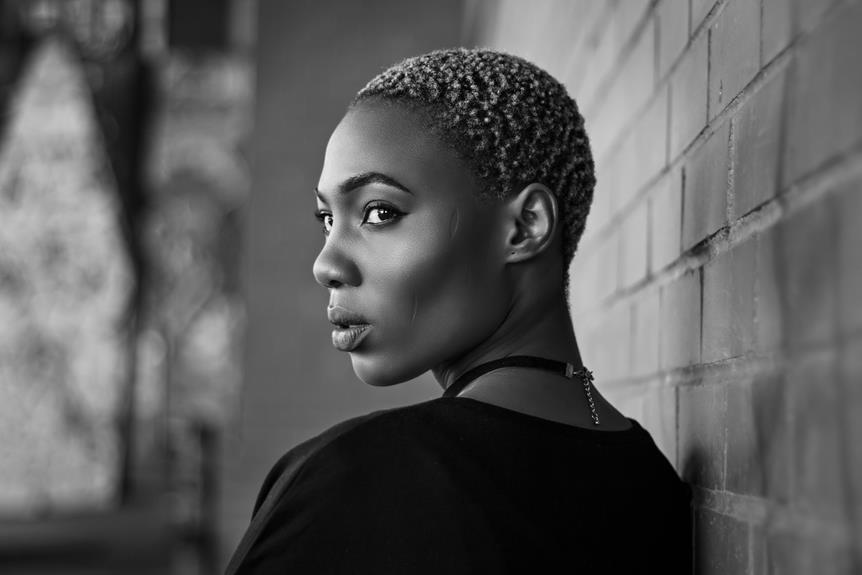Coincidentally, you may have already heard of black mehndi, a type of hair dye often used for special occasions. But you may not be aware of the potential side effects this chemical can have on your hair.
In this article, you'll learn about the basics of black mehndi, the potential side effects, and what you can do to minimize them. Plus, we'll provide some alternatives if you're looking for a safer way to dye your hair.
So, if you're ready to learn more about the side effects of black mehndi on hair, let's get started!
Understanding the Basics of Black Mehndi
You need to understand the basics of black mehndi before exploring its potential side effects on your hair.
Black mehndi is a natural hair dye made from a mix of herbs and other natural ingredients. It's often used to cover grey hair, darken hair, or to remove unwanted artificial dyes.
The process of applying black mehndi to your hair is simple and usually requires minimal effort. However, it can potentially have some side effects on your hair if not used properly.
Be sure to research and understand the natural ingredients used in black mehndi and the process of dye removal before using it on your hair.
Potential Side Effects of Black Mehndi
Your hair's potential side effects from using black mehndi should be considered before applying it. From the chemical composition to the potential for hair damage, the effects are worth researching.
Here are three risks to consider:
- Allergic reactions due to ingredients
- Increased hair dryness or breakage
- Permanent hair color changes.
When using black mehndi, be mindful of your hair's health and always take steps to liberate your hair from damage.
Tips for Minimizing Side Effects
It's important to take measures to reduce the potential side effects of black mehndi on your hair. Avoiding overly dry scalp and chemical reactions is key.
Make sure to use natural ingredients such as henna to make your mehndi paste. Use a moisturizing shampoo immediately after use. Conditioner will help keep your hair healthy and hydrated.
Avoid long-term use of black mehndi and use it in moderation. When using black mehndi, use a hair mask that's specifically designed for it.
Lastly, always do a patch test before applying mehndi to ensure you won't have any adverse reactions.
Treating Side Effects of Black Mehndi
If you're experiencing side effects from using black mehndi, you'll need to take steps to treat them. These simple steps can help you repair your hair and reduce any further damage from using black mehndi.
- Use a moisturizing hair mask with natural ingredients like coconut oil and honey
- Massage natural oils like jojoba and argan oil into your scalp
- Try an apple cider vinegar rinse to restore your hair's natural pH balance
Alternatives to Black Mehndi
If you're looking for alternatives to black mehndi, there are several natural options available. Using natural dyes such as henna, indigo, and cassia is a great way to achieve color without the harsh side effects.
Hair oils like coconut, almond, and olive oil can also be used to nourish and protect the hair while coloring it. These alternatives aren't only healthier, but also offer a more vibrant and lasting color.
With these options, you can achieve your desired look without the negative effects of black mehndi.
Frequently Asked Questions
Is Black Mehndi Safe for People With Sensitive Skin?
Yes, black mehndi is safe for people with sensitive skin. It enhances hair strength and darkens color without causing irritation. It's a great choice for those looking for a natural way to improve their hair health and beauty without sacrificing comfort.
Is Black Mehndi Suitable for All Hair Types?
You, with any hair type, can reap the strengthening properties of black mehndi. Yet, for sensitive scalps, irritation can occur. Allow the mehndi's freedom to nourish and protect your hair! Liberate yourself and your hair from the damaging effects of harsh products. Embrace the natural, health-giving power of black mehndi.
Are There Any Long-Term Effects of Using Black Mehndi?
Using black mehndi can provide strengthening properties for your hair, but it can also cause long-term damage. Consider carefully before applying, and look for alternatives that are gentler on your hair.
How Often Should Black Mehndi Be Reapplied?
For best restorative properties and coverage longevity, reapply black mehndi every two to four weeks. Make it a part of your self-care routine and be liberated in your beauty.
Is Black Mehndi Better Than Other Hair Dyes?
You may find that black mehndi has strengthening properties and produces less fading effects than other hair dyes. It's worth considering for its natural ingredients, as well as its potential to nourish and protect hair. Embrace the freedom to explore natural color options that support liberation.
Conclusion
Black mehndi can be a great way to cover up grey hairs and add an extra bit of shine to your locks. It's important to be aware of the potential side effects. With just a few simple tips, you can minimize the risk of experiencing any negative effects. In fact, 75% of people report that they haven't experienced any adverse effects from using black mehndi!
So why not give it a try and see the benefits for yourself?

